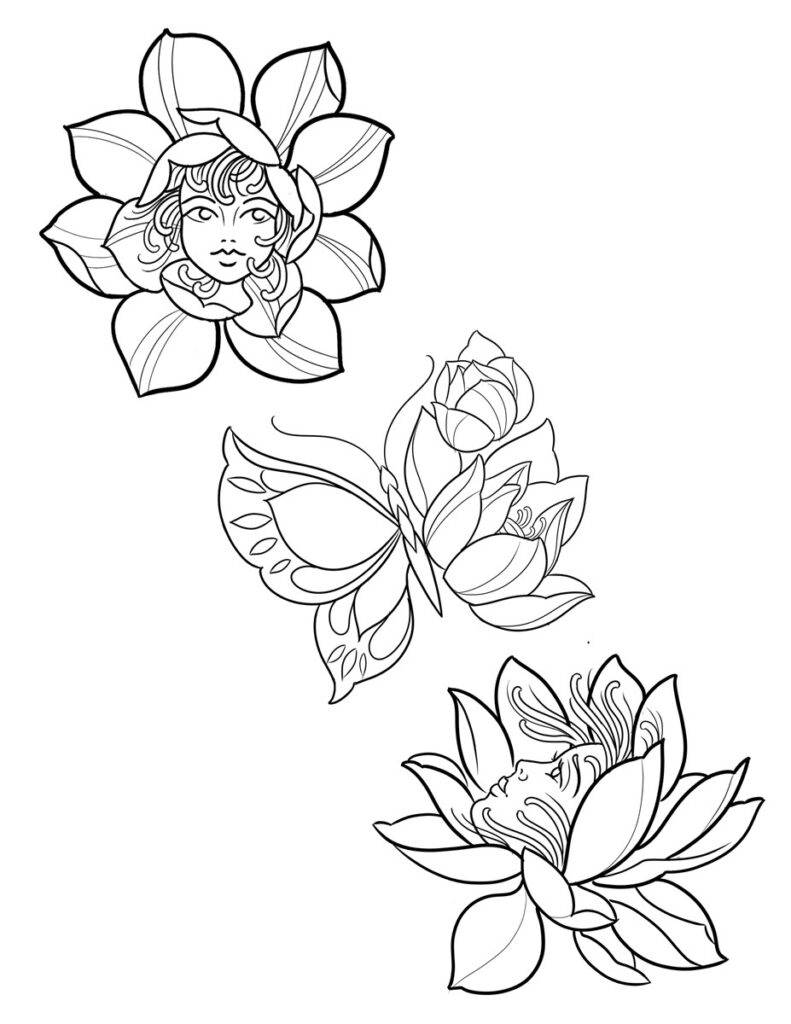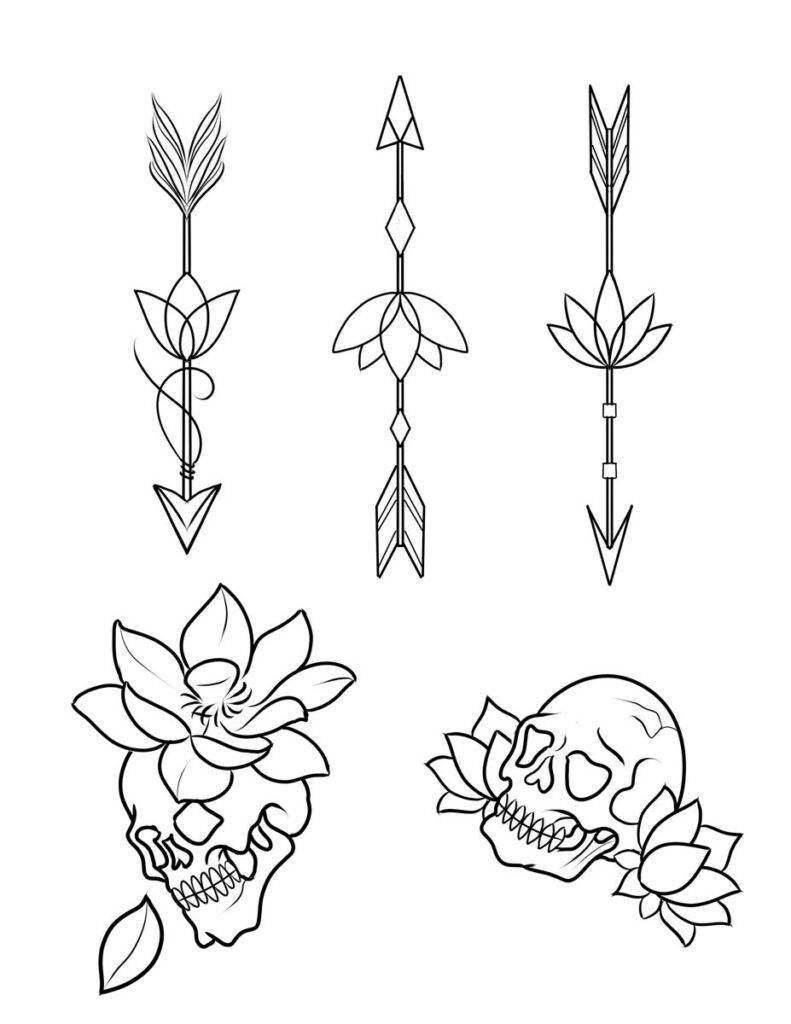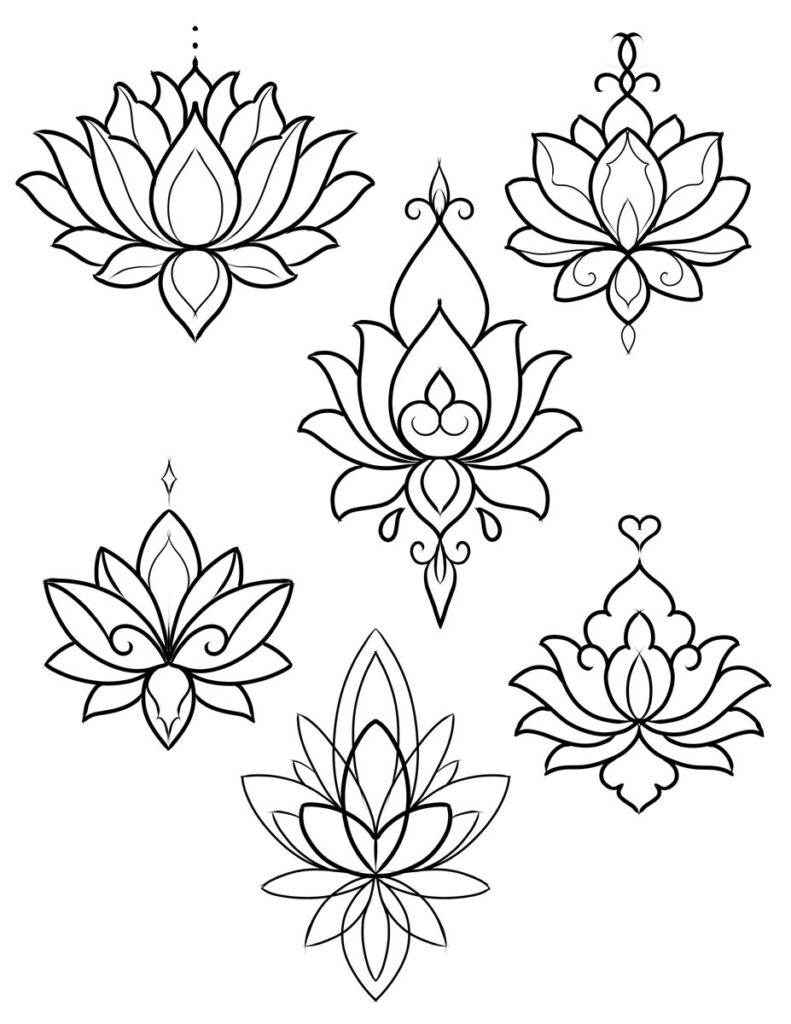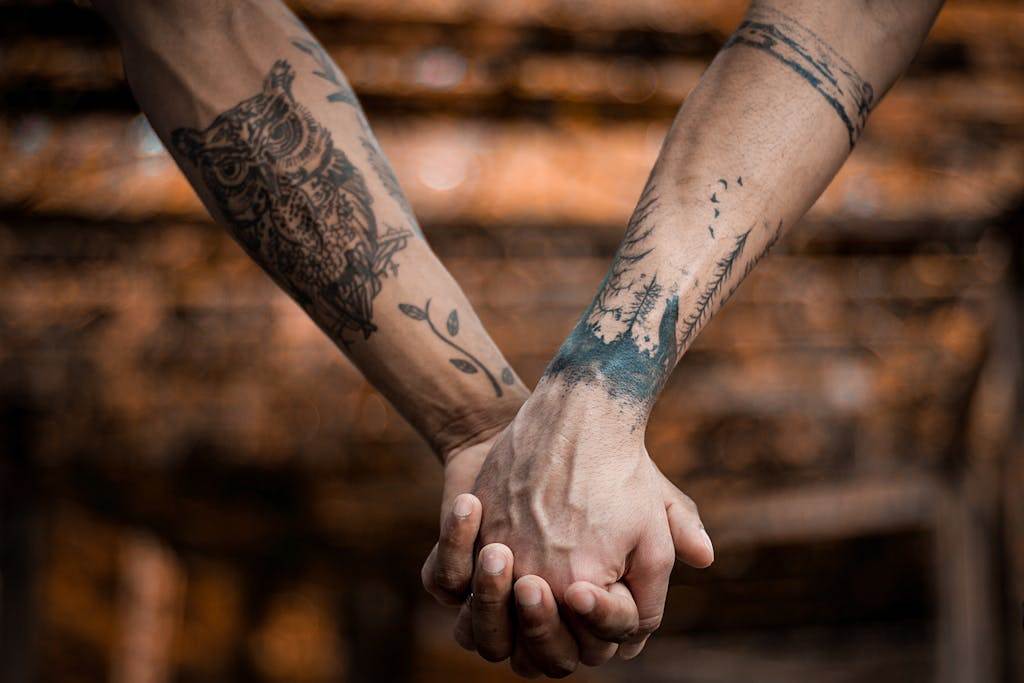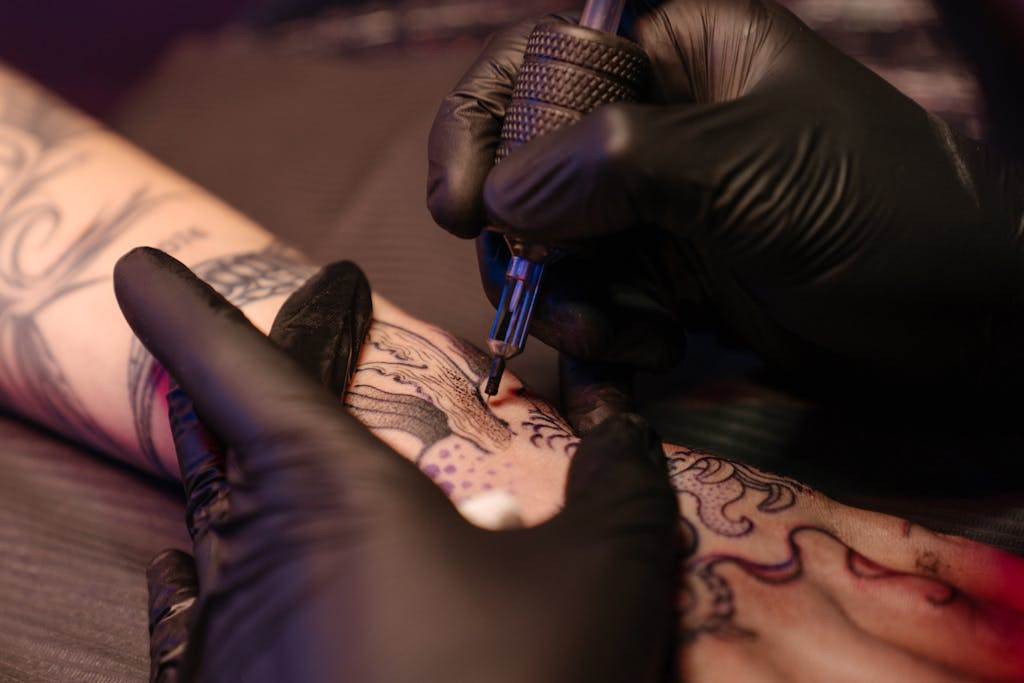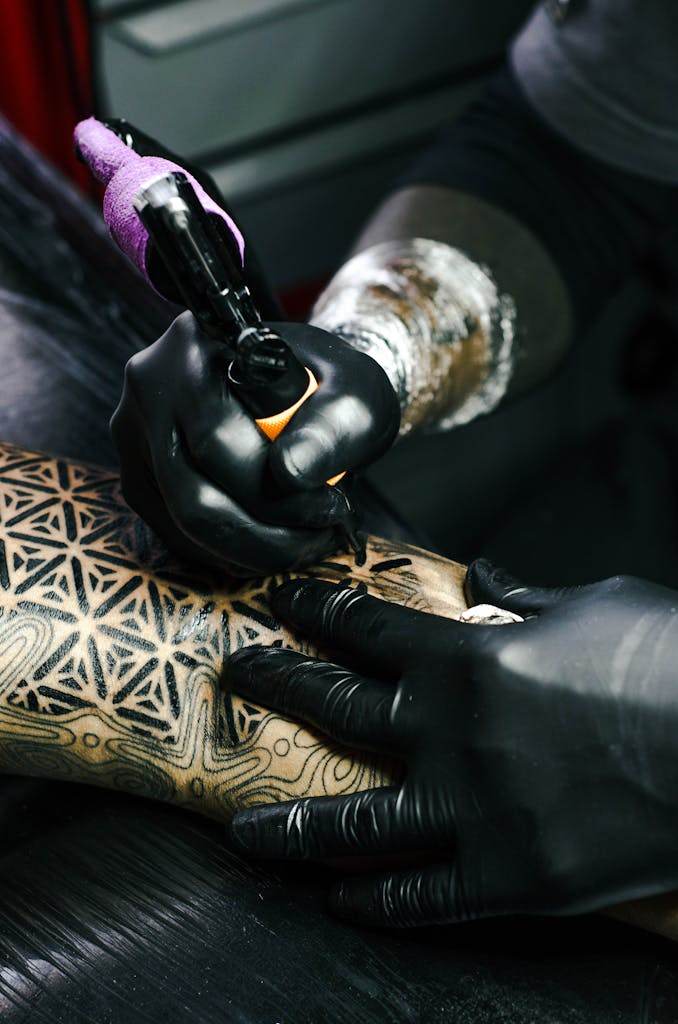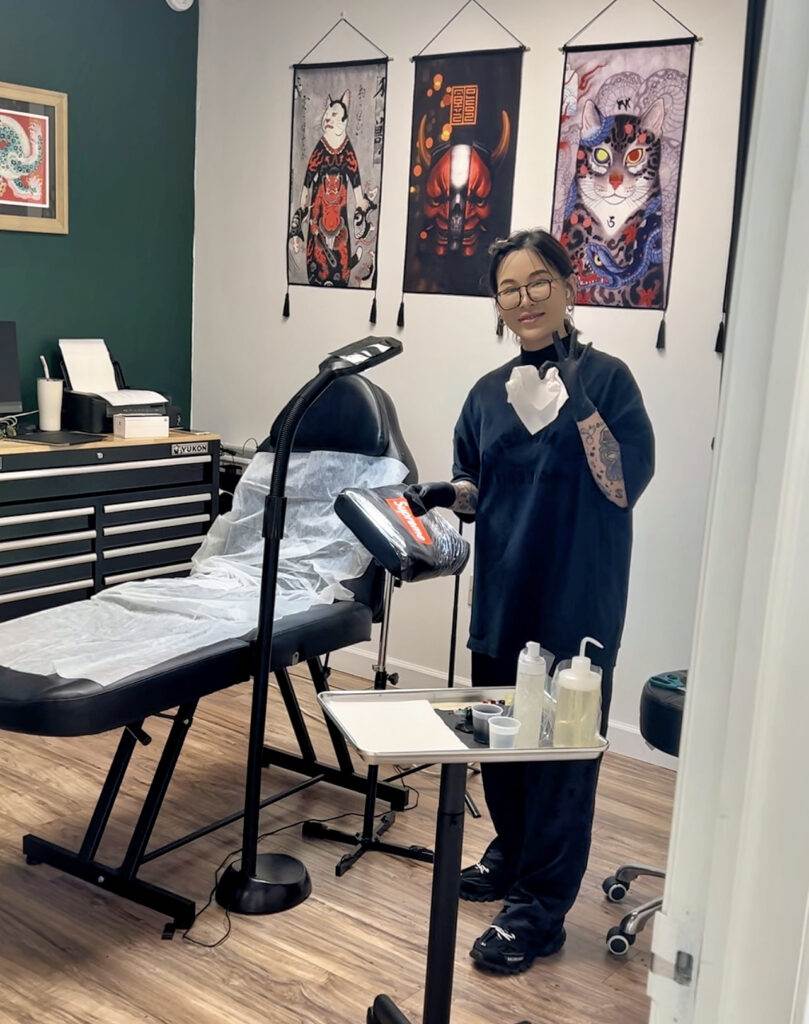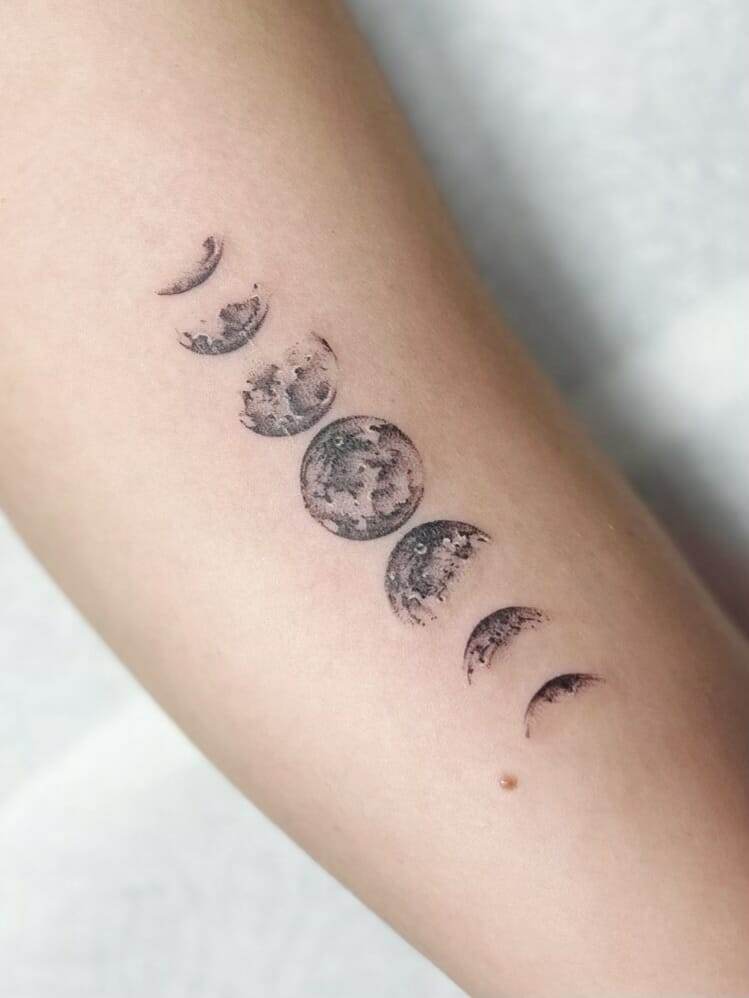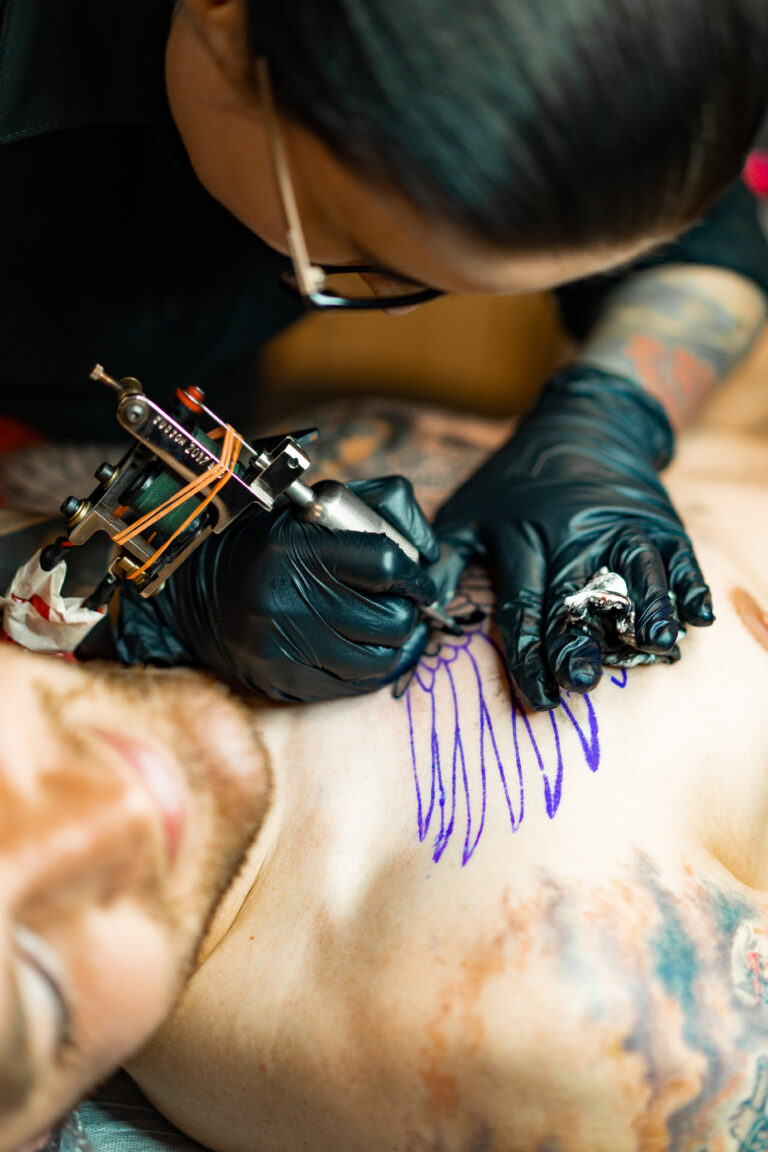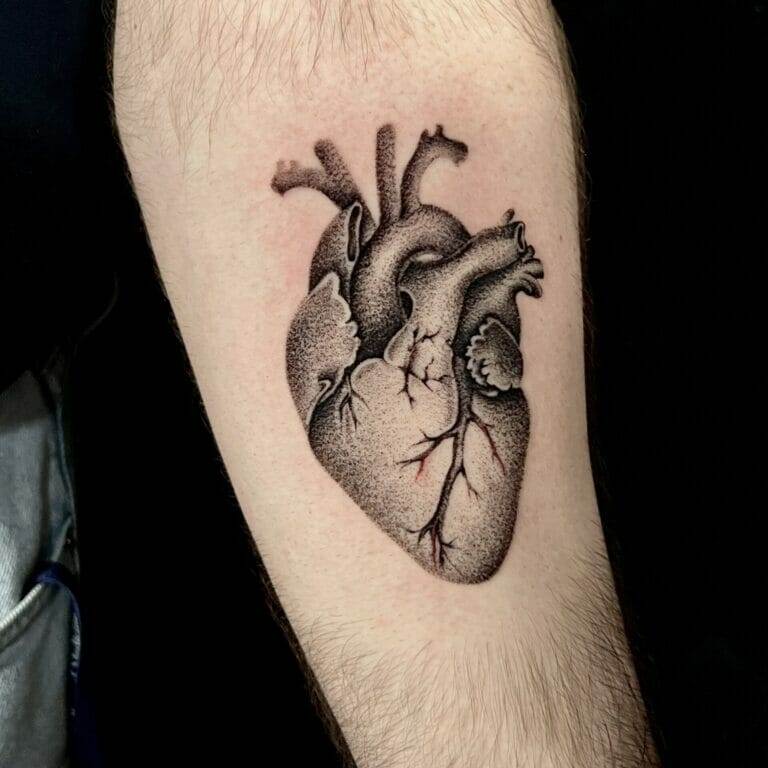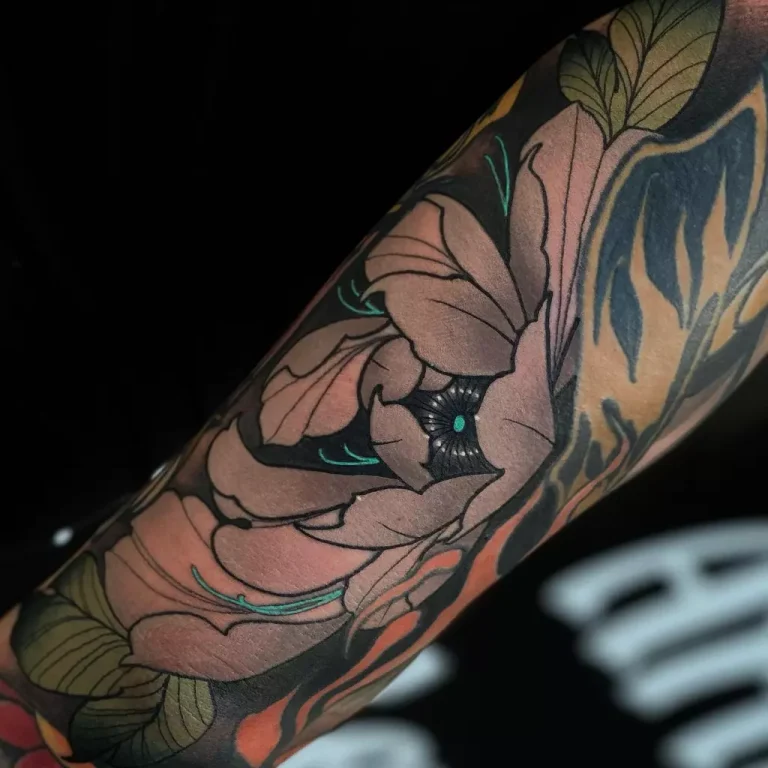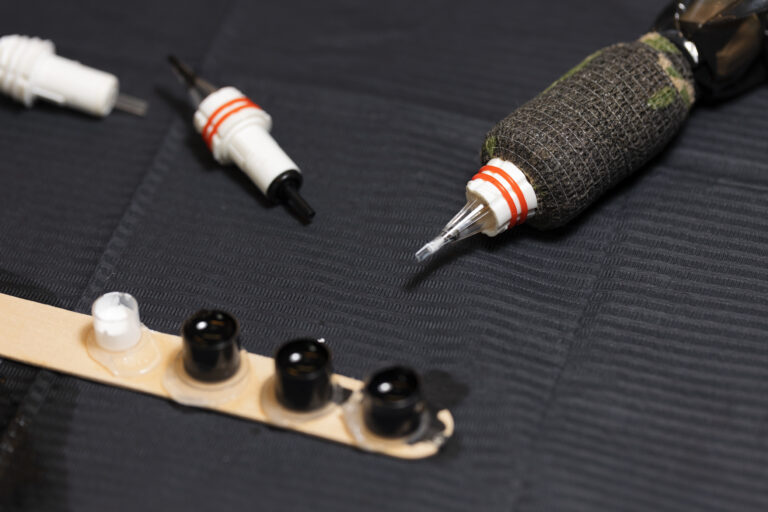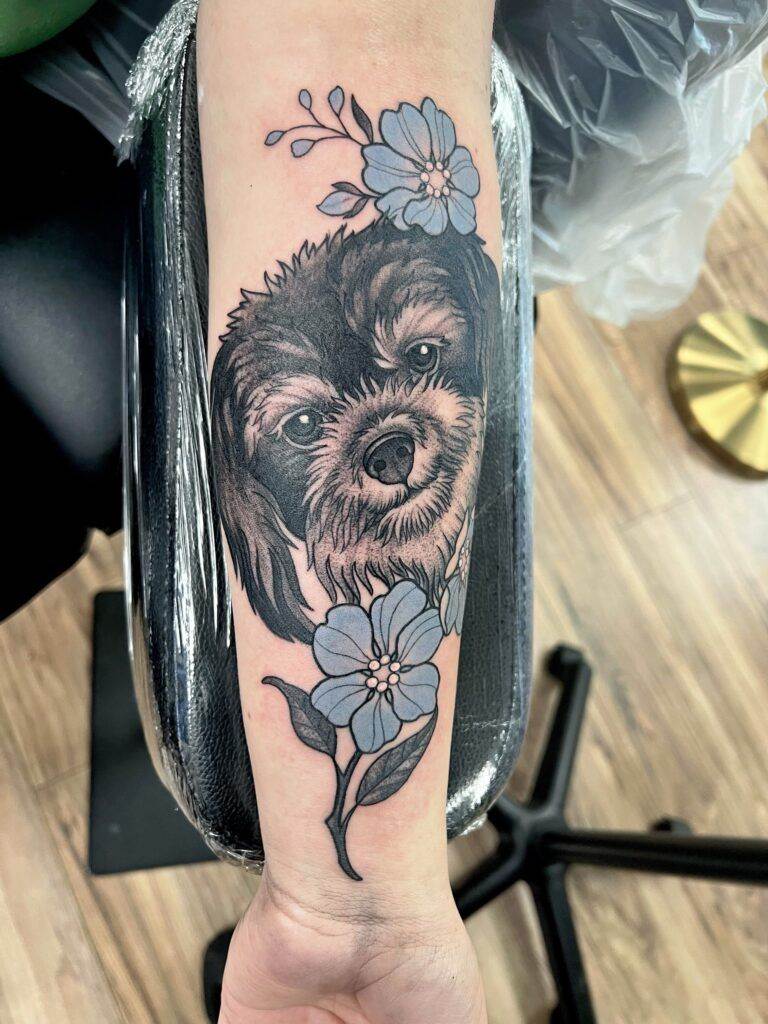Importance of Tattoo Consultations
Ensuring Design Alignment
The tattoo consultation process is crucial for anyone looking to get inked. One of the primary benefits is the opportunity for design alignment between the client and the artist. This initial conversation is vital for ensuring both parties share a common vision for the tattoo, minimizing the risk of misunderstandings later on. During the consultation, clients should:
- Discuss their vision: Clearly communicate the concept, symbols, or imagery they have in mind.
- Consider style variations: Explore different styles, whether they prefer traditional, realism, or abstract designs.
- Seek professional insights: Artists may suggest modifications or enhancements based on their expertise and experience.
By taking time to align on the design, clients can feel more confident that the final piece will resonate with their initial intent.
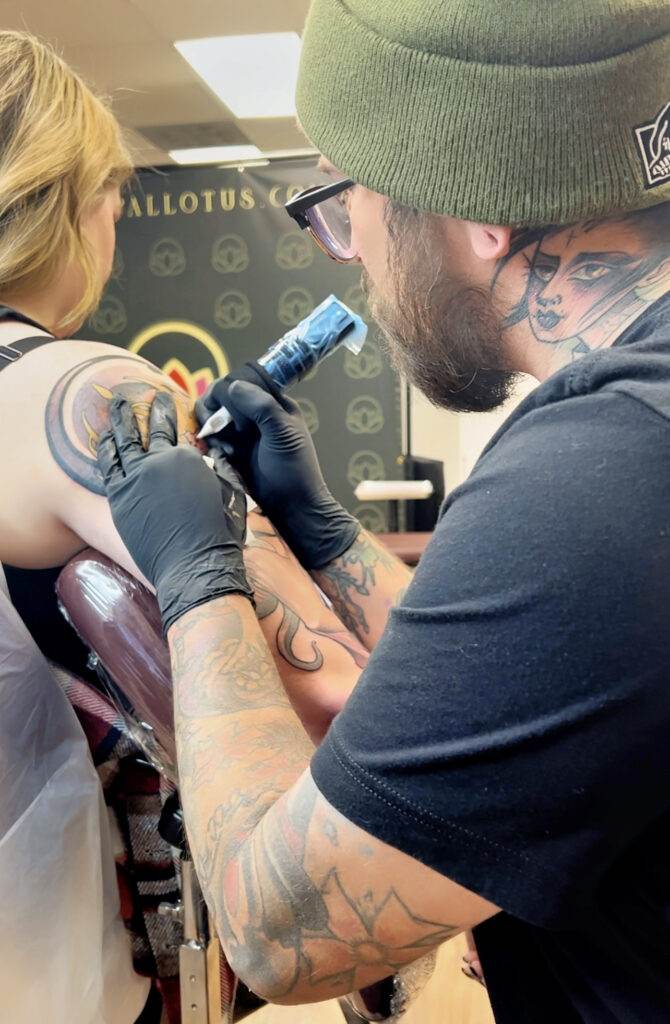
Understanding Aftercare Instructions
Aftercare is another critical component discussed during consultations, as it determines the longevity and appearance of the tattoo. A well-informed client is likely to have a more successful healing process, resulting in a vibrant and clear piece of art. Key points about aftercare to address during the consultation include:
- Immediate post-tattoo care: How to clean the tattoo and when to apply ointments.
- Long-term care: Recommendations on moisturizing and protecting the design during the healing phase.
- Signs of complications: Understanding what constitutes normal healing and when to seek medical advice.
By discussing aftercare thoroughly, clients will leave the consultation feeling empowered with the knowledge they need to care for their tattoo properly. This proactive approach not only enhances the tattoo’s quality but also fosters a trusting relationship between the client and artist. In essence, tattoo consultations play an indispensable role in ensuring that design concepts align and that clients are prepared for the tattoo care journey ahead. This foundational step enhances client satisfaction and sets the stage for a successful tattoo experience.
Preparing for Your Tattoo Consultation
Researching Tattoo Artists
As you prepare for your tattoo consultation, one of the most essential steps is researching tattoo artists. The artist you choose can have a significant impact on the final outcome of your tattoo, so it’s worth dedicating time to find someone whose style resonates with you. Start by considering the following:
- Portfolio Review: Look for artists who showcase a diverse portfolio of their work. Examine the quality, detail, and various styles they offer.
- Specializations: Different artists often have unique strengths, whether it be portraits, floral designs, or geometric patterns. Identify artists who specialize in the style you’re interested in.
- Client Testimonials: Read reviews and testimonials from previous clients. This insight can highlight an artist’s professionalism, hygiene practices, and overall client satisfaction.
Additionally, take note of artists’ social media profiles, where you can often see the most current work and get a sense of their artistic growth over time.
Gathering Inspiration Images
Once you have shortlisted potential artists, the next step is gathering inspiration images. This creative process can help clarify your ideas, making it easier for both you and the artist during your consultation. Here’s how to effectively collect inspiration:
- Use Online Platforms: Explore sites like Pinterest or Instagram to find images that resonate with your vision. Create a mood board to visualize your concepts.
- Clip and Save: Save images that represent specific elements you love—colors, styles, or details. They will serve as reference points during your discussion.
- Consider Personal Significance: Gather imagery that has personal meaning or tells a story you want to convey through your tattoo. This will strengthen your connection to the design.
By coming prepared with researched artists and a collection of inspiration images, you’ll feel more confident and informed going into your consultation. This preparation not only streamlines the process but ensures your artist has a clearer understanding of your vision, setting a solid foundation for your tattoo journey.
Communicating Your Ideas Clearly
Discussing Design Preferences
Now that you’ve prepared thoroughly for your tattoo consultation, it’s time to discuss your ideas with the artist. Effective communication about your design preferences is vital, as it shapes the overall development of your tattoo. To ensure a productive conversation, consider these points:
- Be Specific: Instead of saying you want a “flower tattoo,” specify the type of flower, colors, and any accompanying elements, such as leaves or stems. The more detail you provide, the better the artist can comprehend your vision.
- Use Your Inspiration Images: Show the collected images during the discussion. When you point to certain aspects of the images, explain why they appeal to you—this will help the artist grasp what excites you about your ideal design.
- Discuss Symbolism: If your tattoo carries personal meaning, share its significance. This context not only enhances the artist’s understanding but can also lead to creative suggestions that align with your vision.
By clearly articulating your design preferences, you give your artist a solid foundation to work from, enabling them to create something uniquely yours.
Sharing Placement Considerations
Placement is another crucial aspect of tattoo planning that warrants discussion during your consultation. The location of your tattoo can affect its visibility, size, and overall impact. Here are some factors to consider:
- Visibility and Lifestyle: Think about how visible you want your tattoo to be in your daily life. Will it need to be easily concealed for professional settings, or do you prefer it to be prominently displayed?
- Body Structure and Shape: Different areas of the body offer varying canvases. Discuss how the artist can work with your body shape to create a tattoo that flows naturally—this might influence design adjustments.
- Pain Tolerance: Some areas of the body are more sensitive than others. If you’re concerned about pain, share this with your artist, who can help you choose a less sensitive area or adjust the tattoo size accordingly.
Communicating clearly about design preferences and placement considerations enables a collaborative atmosphere during your consultation. When both you and the artist are on the same page, the likelihood of achieving a tattoo that you love increases significantly. This two-way dialogue fosters creativity and ensures that the final result is a beautiful representation of your ideas and desires.
Understanding the Tattoo Process
Learning about Equipment Used
As you delve deeper into the tattoo process, it becomes essential to understand the equipment that will be used during your session. A knowledgeable client can feel more comfortable and confident when familiar with the tools involved. Here’s a breakdown of the common equipment you might encounter:
- Tattoo Machines: These are the primary tools used by artists to apply ink. There are two main types:
- Rotary Machines: Popular for their versatility and quiet operation, these machines use a simple motor system.
- Coil Machines: These machines create a distinct buzzing sound and are favored for their ability to produce shading and lining with precision.
- Needles: Various needles are used depending on the style of the tattoo, such as single needles for detailed work or group needles for shading. Discuss the types of needles your artist uses and why they prefer them.
- Inks: Quality inks are critical for vibrant, long-lasting tattoos. Inquire about the brands your artist uses, and discuss any allergies or concerns you may have about specific inks.
- Sanitization Supplies: A reputable artist prioritizes hygiene and safety. Observe if they use gloves, sterilize equipment, and maintain a clean workspace.
Familiarizing yourself with this equipment not only demystifies the process but also emphasizes the importance of professional standards.
Clarifying Tattoo Pricing
Understanding the pricing structure for your tattoo is equally important. Each artist may have their pricing methods, and clarity will help avoid surprises later on. Consider the following factors that can influence tattoo pricing:
- Size and Complexity: Larger and more intricate designs typically cost more due to the time and skill required.
- Artist Experience: Established artists may charge higher rates based on their reputation and skill level. Don’t hesitate to ask about their rates and how they correlate with the investment in their craft.
- Time Estimates: Discuss the anticipated duration of your tattoo session. A detailed estimate will help you gauge the overall cost and planning involved.
It’s also wise to ask whether the price includes touch-ups after the tattoo has healed, as this can be a common practice to ensure the enduring quality of the piece. By gaining a clear understanding of the equipment used and tattoo pricing, clients can engage more fully in their experience. This knowledge enhances comfort while fostering a sense of collaboration between the client and tattoo artist, ensuring a positive journey leading up to the final reveal of the tattoo.
Establishing Trust with Your Tattoo Artist
Asking Questions
Establishing a strong rapport with your tattoo artist is vital for a successful tattoo experience. One of the most effective ways to build this trust is by asking questions during your consultation. This shows your artist that you are engaged and invested in the process, which can lead to a more collaborative relationship. When considering what to ask, think about:
- Experience and Style: Inquire about the artist’s background, specialties, and favorite styles. This understanding can shape your expectations regarding the final piece.
- Techniques and Equipment: Don’t hesitate to ask about the tools and techniques they use. Understanding their approach can assure you of their expertise and professionalism.
- Safety Practices: Questions about sterilization methods and overall hygiene practices are essential. A trustworthy artist will appreciate your concern for safety and should be open about their procedures.
Asking thoughtful questions not only provides you with necessary information but also cultivates a connection between you and the artist.
Addressing Concerns
Alongside asking questions, addressing any concerns you may have is equally important in establishing trust with your tattoo artist. Open communication facilitates transparency and ensures that the process feels comfortable for you. Consider discussing:
- Pain Tolerance: If you have concerns about pain, express them. A good artist will offer insights on the most sensitive areas and tips on managing discomfort.
- Design Changes: If you are uncertain about a particular aspect of the design, voice your thoughts. Artists appreciate feedback, as it allows them to adjust the design to better suit your vision.
- Aftercare: Address any worries about healing and aftercare. Ask for specific guidelines, as well as follow-up procedures, to ensure you’re fully prepared for the healing journey.
By proactively addressing your concerns, you create an environment of openness that fosters trust and collaboration. This partnership not only enhances your comfort level but ultimately leads to a tattoo that meets your expectations. Establishing trust with your tattoo artist is a multifaceted approach that hinges on effective communication. By asking questions and addressing concerns, you build a relationship grounded in confidence, ensuring that your tattoo experience is both positive and memorable.

